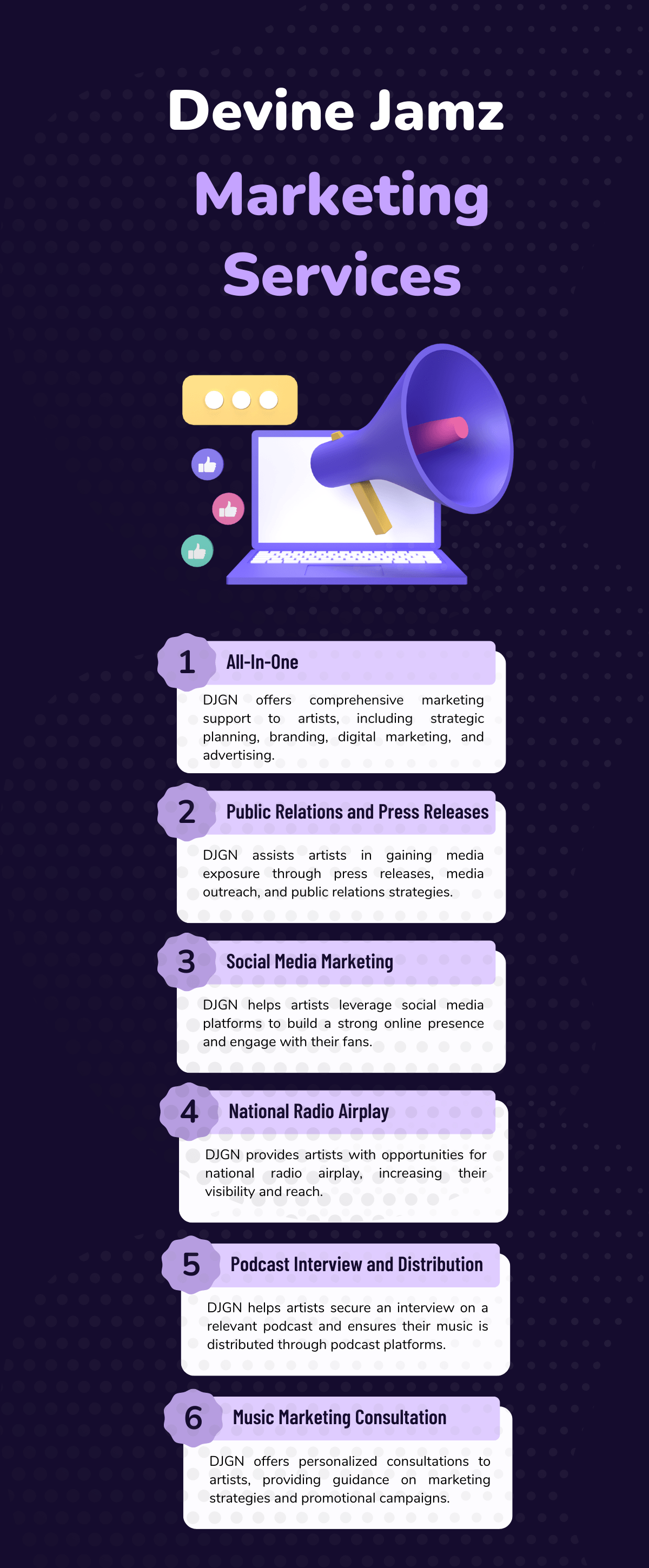How to Sell Your Content Management System or Online Business
In the rapidly evolving landscape of online businesses, knowing when to sell can be just as crucial as knowing how to build and grow your venture. Whether you own an online Content Management System (CMS) or a digital marketing business, recognizing the opportune moment to sell is a strategic decision that requires careful consideration. This article delves into the various factors to contemplate when contemplating a sale, offering guidance on timing and rationale for divesting your asset.
Understanding the Potential for Profitability
Before delving into the timing of selling your online CMS or digital marketing business, it's essential to evaluate its potential for profitability. Factors such as revenue growth, market demand, customer base, technology infrastructure, and competitive advantage play pivotal roles in assessing the profit potential. Conducting a thorough financial analysis and market research can provide insights into the trajectory of profitability.
Signs That Indicate It's Time to Sell
Market Conditions:
- Keep a close eye on market trends and industry dynamics. If there's a surge in demand for online CMS solutions or digital marketing services, it could be an opportune time to capitalize on the heightened interest and fetch a premium price for your business.
Personal Goals and Priorities:
- Consider your own aspirations and objectives. If your long-term goals align more with pursuing new ventures or enjoying the fruits of your labor, selling your current business might be a strategic move.
Maximized Growth Potential:
- If you've reached a plateau in terms of growth despite implementing various strategies, selling the business to a more capable entity with resources and expertise to scale it further could be advantageous.
Industry Consolidation:
- In industries prone to consolidation, larger players often acquire smaller firms to enhance their market share, expand their service offerings, or acquire valuable technology. If consolidation is on the horizon in your sector, it might be a good time to explore selling options.
Competitive Landscape:
- Assess the competitive landscape to gauge whether your business holds a sustainable competitive advantage. If intensifying competition threatens your market position or profitability, selling before it's too late could mitigate risks.
Steps to Prepare for a Sale
Optimize Financial Performance:
- Prior to listing your business for sale, ensure that your financial records are in order. Potential buyers will scrutinize financial statements, so presenting accurate and transparent financial data is imperative.
Enhance Value Proposition:
- Identify areas where you can enhance the value proposition of your business. This could involve improving product features, expanding into new markets, or strengthening customer relationships.
Build Scalability:
- Buyers are often attracted to businesses with scalable models that can sustain growth in the long run. Invest in technologies, processes, and talent that facilitate scalability.
Document Intellectual Property and Assets:
- Secure any intellectual property rights associated with your online CMS or digital marketing business. Document patents, trademarks, copyrights, and any proprietary technologies or methodologies.
Engage Professional Advisors:
Consider engaging legal, financial, and business advisors with expertise in mergers and acquisitions. They can provide valuable guidance throughout the selling process, from valuation to negotiation and due diligence.
- Selling your online CMS or digital marketing business is a significant decision that requires careful deliberation and planning. By assessing the profitability potential, monitoring market conditions, and evaluating personal goals, you can determine the optimal timing for a sale.
- Preparation is key, so take proactive steps to enhance the value proposition of your business and engage professional advisors to navigate the complexities of the selling process. Ultimately, selling at the right time and for the right reasons can unlock new opportunities and pave the way for future success.
- Identifying a good buyer for your online business involves thorough due diligence to ensure compatibility, credibility, and the ability to complete the transaction successfully.
Here's how you can evaluate potential buyers expressing interest
Assess Financial Capability:
Proof of Funds
- Request proof of funds or financing capabilities to ensure the buyer has the financial capacity to complete the acquisition.
Previous Transactions
- Inquire about the buyer's track record in acquiring businesses, including their experience with similar transactions and their ability to close deals.
Evaluate Strategic Fit:
Alignment with Your Business
- Assess whether the buyer's goals and objectives align with the vision and mission of your online business.
Synergies
- Identify potential synergies between your business and the buyer's existing operations or strategic objectives.
Reputation and Credibility:
Background Check
- Conduct a background check on the buyer to verify their reputation, credibility, and integrity. Look for reviews, testimonials, or references from previous sellers or business partners.
Industry Reputation
- Evaluate the buyer's reputation within the industry and their standing among peers and competitors.
Compatibility and Cultural Fit:
Communication Style
- Assess the buyer's communication style, responsiveness, and professionalism. Effective communication is crucial throughout the negotiation and due diligence process.
Corporate Culture
- Consider whether the buyer's corporate culture and values align with those of your online business, as cultural compatibility can impact post-acquisition integration and success.
Long-Term Vision:
Future Plans
- Discuss the buyer's long-term vision and strategy for your online business post-acquisition. Ensure that their plans align with your desired legacy for the business and the well-being of your employees and stakeholders.
Commitment to Growth
- Evaluate the buyer's commitment to investing in the growth and development of the business over the long term.
Legal and Regulatory Compliance:
Due Diligence Process
- Clarify the buyer's willingness to undergo a comprehensive due diligence process to assess legal, financial, and operational aspects of the business.
Compliance Requirements
- Ensure that the buyer is aware of and willing to comply with legal and regulatory requirements associated with the acquisition, including any industry-specific regulations.
Professional Representation:
Engagement of Advisors
- Assess whether the buyer has engaged professional advisors, such as legal counsel or financial advisors, to facilitate the acquisition process. Professional representation can enhance the credibility and efficiency of the transaction.
Negotiation and Terms:
Flexibility
- Evaluate the buyer's flexibility and willingness to negotiate terms that are mutually beneficial for both parties.
Fair Valuation
- Ensure that the buyer's valuation of your online business is fair and reflective of its true worth, considering factors such as revenue, profitability, growth potential, and market comparable.
Carefully vetting potential buyers who express interest in purchasing your online business is essential to ensuring a successful and mutually beneficial transaction. By assessing financial capability, strategic fit, reputation, compatibility, long-term vision, legal compliance, professional representation, and negotiation terms, you can identify a good buyer who is well-positioned to acquire and nurture your business. Remember to conduct thorough due diligence and seek professional advice to mitigate risks and maximize value throughout the selling process.
Securing intellectual property rights, trademarking and copyrighting
Securing Intellectual Property Rights: Trademark
Conduct a Trademark Search
- Search the United States Patent and Trademark Office (USPTO) database to ensure that the name "Devine Jamz Gospel Network" is available for trademark registration and not already in use by another entity in a similar industry.
File a Trademark Application
- Submit a trademark application through the USPTO's Trademark Electronic Application System (TEAS). Provide accurate information about your business, logo, and the goods/services associated with the mark.
Monitor Application Status
- Monitor the status of your trademark application through the USPTO's Trademark Status & Document Retrieval (TSDR) system. Respond promptly to any office actions or requests for additional information.
Trademark Registration
- Once your trademark application is approved, your mark will be published in the Official Gazette. If there are no oppositions or objections, you will receive a registration certificate, providing exclusive rights to use the mark in connection with the specified goods/services.
Copyright:
Identify Copyrightable Material
- Determine which elements of your website, content, and marketing materials are eligible for copyright protection, such as original text, images, graphics, videos, and marketing methodologies.
Create a Copyright Notice
- Include a copyright notice (e.g., "Copyright © [Year] Devine Jamz Gospel Network. All Rights Reserved.") on your website and marketing materials to notify others of your ownership rights.
Register Copyrights
- While copyright protection exists automatically upon creation of original works, registering your copyrights with the U.S. Copyright Office provides additional benefits, including the ability to pursue legal action for infringement.
File Copyright Applications
- Complete and submit copyright applications for eligible works through the U.S. Copyright Office's electronic registration system (eCO). Include accurate information about the authorship and ownership of the works.
Pay Registration Fees
- Pay the required registration fees for each copyright application submitted. Fees vary depending on the type of work being registered.
Receive Copyright Certificates
- After review and approval, you will receive copyright registration certificates for each work submitted, providing official documentation of your copyright ownership.
Protecting Marketing Methodologies:
Document Marketing Methodologies
- Document your unique marketing strategies, techniques, and methodologies in detail, including any proprietary processes or algorithms developed by your business.
Maintain Confidentiality
- Take measures to maintain the confidentiality of your marketing methodologies, such as implementing non-disclosure agreements (NDAs) with employees, contractors, and business partners.
Consider Trade Secret Protection
- Evaluate whether certain marketing methodologies qualify for trade secret protection. Implement safeguards to maintain the secrecy of confidential information, such as restricted access and encryption.
Determining the monetary value of an online business:
Financial Evaluation
- Start by conducting a thorough financial evaluation of the business. This includes assessing revenue streams, profit margins, expenses, and cash flow. Analyze historical financial data to understand the business's financial performance over time.
Asset Valuation
- Determine the value of tangible and intangible assets owned by the business. Tangible assets may include equipment, inventory, and physical infrastructure. Intangible assets such as intellectual property, brand reputation, and customer databases also contribute to the overall value.
Market Analysis
- Conduct a market analysis to understand the industry landscape and market trends. Evaluate how Devine Jamz Gospel Network compares to competitors and identify its unique selling points. Consider factors such as market demand, growth potential, and competitive positioning.
Revenue Multiples
- Utilize revenue multiples to estimate the business's value based on its revenue. This involves comparing the business's revenue to similar companies in the industry and applying a multiple to determine its value. Factors such as growth rate, profitability, and market dynamics influence the multiple.
Profitability Metrics
- Assess profitability metrics such as earnings before interest, taxes, depreciation, and amortization (EBITDA) or net income. These metrics provide insight into the business's ability to generate profits and may influence its valuation.
Discounted Cash Flow (DCF) Analysis
- Conduct a discounted cash flow analysis to estimate the present value of future cash flows generated by the business. This involves forecasting future cash flows and discounting them back to their present value using a discount rate that reflects the business's risk.
Professional Valuation Services
- Consider hiring professional valuation services to conduct a comprehensive valuation of the business. Experienced valuation experts can provide an objective assessment based on industry standards, market conditions, and financial analysis.
Potential Growth Opportunities
- Factor in potential growth opportunities and expansion plans when assessing the business's value. Consider how future initiatives, partnerships, or market trends may impact the business's revenue and profitability.
Seller's Discretionary Earnings (SDE)
- For smaller businesses, especially those with a single owner-operator, consider using seller's discretionary earnings (SDE) as a valuation metric. SDE accounts for the owner's salary, perks, and non-essential expenses, providing a more accurate picture of the business's profitability.
Consultation with Business Brokers
- Seek guidance from business brokers or M&A advisors who specialize in selling online businesses. These professionals can provide insights into market conditions, valuation methodologies, and potential buyers, helping you navigate the sales process effectively.
By considering these methods and consulting with industry experts, you can gain a comprehensive understanding of its monetary value and make informed decisions about selling the business.
Mergers and Acquisitions advisors who specialize in facilitating the sale:
FE International
- FE International is a leading M&A advisory firm specializing in the sale of SaaS, e-commerce, and content-based online businesses. They have a team of experienced advisors who provide personalized guidance throughout the entire sales process.
Quiet Light Brokerage
- Quiet Light Brokerage focuses on helping entrepreneurs sell their online businesses, including e-commerce stores, SaaS companies, and content websites. They offer personalized advisory services and have a track record of successful transactions.
Empire Flippers
- Empire Flippers is a marketplace for buying and selling online businesses, including e-commerce stores, affiliate sites, and SaaS businesses. They offer brokerage services and provide assistance with valuation, due diligence, and negotiations.
Website Properties
- Website Properties specializes in the sale of established online businesses, including e-commerce websites, Amazon FBA businesses, and content websites. Their team of advisors has extensive experience in the online business market.
Digital Exits
- Digital Exits is an M&A advisory firm that focuses on helping entrepreneurs sell their online businesses for maximum value. They offer comprehensive services, including valuation, marketing, and negotiations, to facilitate successful transactions.
AcquisitionStation
- AcquisitionStation is a boutique M&A advisory firm that assists entrepreneurs in selling their online businesses, including e-commerce stores, Amazon businesses, and digital assets. They provide personalized guidance and support throughout the sales process.
InvestmentBank.com
- InvestmentBank.com offers M&A advisory services for entrepreneurs looking to sell their online businesses. They provide strategic advice, valuation analysis, and assistance with negotiations to ensure a successful sale.
Digital Acquisitions
- Digital Acquisitions specializes in the sale of digital assets, including websites, domains, and online businesses. Their team of experts offers personalized advisory services to help clients maximize the value of their online assets.
Founders Investment Banking
- Founders Investment Banking provides M&A advisory services for middle-market companies, including online businesses. They have a team of experienced advisors who offer strategic guidance and support throughout the entire transaction process.
Raincatcher
- Raincatcher is an M&A advisory firm that focuses on helping entrepreneurs sell their online businesses. They offer personalized services, including valuation, marketing, and negotiations, to ensure a smooth and successful transaction.
These M&A advisors specialize in assisting entrepreneurs in selling their online businesses and can provide valuable expertise and support throughout the sales process.
Suggestions on how to sell an online Content Management System (CMS) or Digital Marketing business to potential buyers:
Prepare Detailed Documentation:
- Gather all necessary documents related to your business, including financial statements, customer data, marketing strategies, and any legal documentation. This documentation will provide potential buyers with a comprehensive overview of the business's operations and performance.
Understand Your Business's Value:
- Conduct a thorough evaluation of your business to determine its market value. Consider factors such as revenue, profit margins, growth potential, intellectual property, customer base, and brand reputation. Understanding your business's value will help you set a realistic asking price and negotiate effectively with potential buyers.
Identify Potential Buyers:
- Create a list of potential buyers who may be interested in acquiring your business. This could include competitors, investors, private equity firms, or individuals looking to enter the CMS or digital marketing industry. Research each potential buyer to understand their background, interests, and acquisition criteria.
Prepare a Compelling Sales Pitch:
- Develop a compelling sales pitch that highlights the unique value proposition of your business. Focus on key selling points such as the quality of your CMS platform, the effectiveness of your digital marketing services, your loyal customer base, and any competitive advantages you may have.
Market Your Business:
- Utilize various channels to market your business to potential buyers. This could include online marketplaces, industry-specific forums, social media platforms, and networking events. Create professional marketing materials such as brochures, presentations, and websites to showcase your business to potential buyers.
Engage in Negotiations:
- Once you have identified interested buyers, engage in negotiations to reach a mutually beneficial agreement. Be prepared to discuss terms such as the selling price, payment structure, transition period, and any other relevant details. Remain flexible and open to compromise to facilitate a successful transaction.
Perform Due Diligence:
- Allow potential buyers to conduct due diligence on your business to verify the accuracy of the information provided and assess any potential risks or liabilities. Cooperate fully during this process and address any concerns or questions raised by the buyer in a transparent manner.
Finalize the Sale Agreement:
- Work with legal professionals to draft a comprehensive sale agreement that outlines the terms and conditions of the transaction. This agreement should cover important aspects such as the purchase price, payment terms, non-compete clauses, intellectual property rights, and any other relevant provisions.
Facilitate the Transition:
- Assist the buyer in transitioning ownership of the business smoothly. This may involve providing training and support to the buyer's team, transferring customer relationships and contracts, and ensuring continuity of operations during the transition period.
Follow Up After the Sale:
- After the sale is complete, follow up with the buyer to ensure a successful transition and address any post-sale issues or concerns. Maintain a positive relationship with the buyer to foster potential future opportunities for collaboration or referrals.
By following these steps, you can effectively sell your online Content Management System or Digital Marketing business to interested buyers and achieve a successful outcome.












